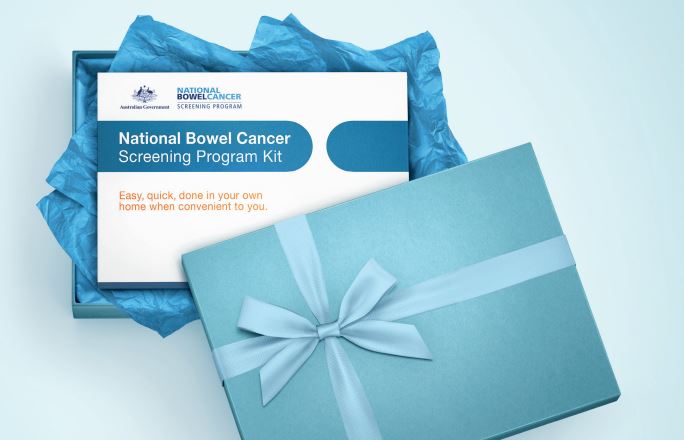
Only 40% of people who receive free National Bowel Cancer Screening kits actually complete them - with men younger than 70 having the lowest rates of use, citing fear of the test process and embarrassment in dealing with faeces among reasons for avoiding the test.
The need to improve this situation is urgent. Bowel cancer is the third most commonly-diagnosed cancer in Australia and second most frequent cause of death from cancer - although up to 90% of deaths from bowel cancer are preventable with early detection.
Researchers at Flinders University have quizzed people about the Australian Government's National Bowel Cancer Screening Program, which offers free screening test kits to people aged between 50 and 74, and found a belief that an increased role of GPs in the screening process could help improve the number of test completions.
Participants in the study from three general practices in low socioeconomic areas of metropolitan Adelaide believe GPs could help support a better uptake of the National Bowel Cancer Screening kits, due to GPs having a patient's trust, respect, confidence, familiarity, expertise, accountability, and the added benefit of providing a personal touch.
Tasks that GPs could help with include presenting information to patients about bowel cancer risks and the screening process before, at the time of testing, and following a screen; providing kits to people; monitoring and sending reminders; and collecting kits.
This suggests support for an individualised approach that is different from the National Screening Program's current population level method that sends kits to people's homes by post.
"Given current burdens on general practice, GP involvement should be just one component of a much larger strategy that targets screening at different levels," says Dr Lynsey Brown, lead author of the study.
Other suggested community-based solutions relate to reducing fear of the test process, training younger generations about the necessity and value of testing, enabling informed decision making, decreasing the stigma of faeces testing and making information widely available - all of which will improve screening culture and public education on bowel cancer.
Strategies to enhance the acceptance of screening in Australia include school-based programs – to not only educate young people so they are prepared for screening in later life but to also have them encourage parents and grandparents to participate.
"Bowel cancer screening is different to other forms of screening as the responsibility is currently placed on the individual to decide whether to take part," says Professor Richard Reed, from Flinders University's College of Medicine and Public Health.
The likelihood of people completing a screening kit was influenced by factors such as having past experiences with cancer, their gratitude for the free program, recognising the value of screening, accepting the advice from others, and prioritising their health care - while females and older people were also more likely to complete the screening test.
Barriers were related to limited community support for screening, lack of urgency when the kit arrived in the mail, traditional upbringing in which bodily functions were not discussed, along with fear and the nature of the testing process. In the words of one participant, "it's embarrassing, it's unpleasant, and it's totally essential."
This study continues Flinders University's ongoing commitment to bowel cancer research , with Professor Graeme Young's work at the Flinders Centre for Innovation in Cancer having been instrumental in establishing the Australian National Bowel Cancer Screening Program - and this current study of patients represents one phase in a larger research program being conducted at Flinders University into bowel cancer screening.
The new study – Patients' views on involving general practice in bowel cancer screening: A South Australian focus group study, by Lynsey Brown, Cecelia Moretti, Leigh Roeger and Richard Reed - has been published by BMJ Open, 2020;10(5):e035244.
This work was supported by a Beat Cancer Hospital Research Package Grant, which was funded by the Cancer Council of South Australia's Beat Cancer Project on behalf of its donors and the State Government of South Australia through the Department of Health, together with the support of the Flinders Medical Centre Foundation, its donors and partners.






